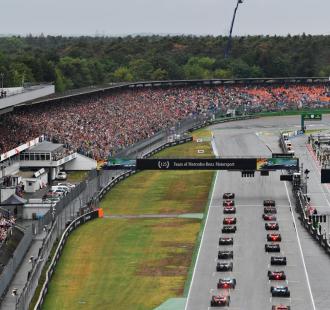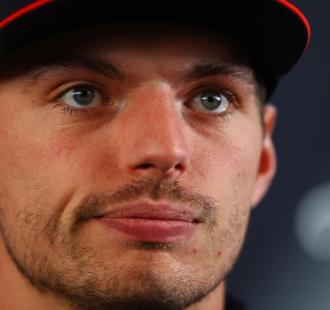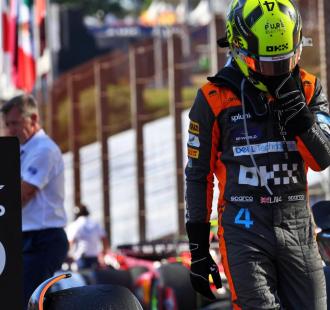
Formula 1 in Germany: What has caused the downfall?
Germany's hand is deeply rooted in the automotive industry withbrands such as Mercedes, Porsche, BMW and Audi hailing from theregion. It is also home to magnificent racing circuits includingthe Nürburgring, Hockenheim, Oschersleben, the Norisring and theLausitzring. It turned its own national class - the DeutscheTourenwagen Masters (DTM) - into a sport that received globalattention. Germany has produced greats such as Michael Schumacherand Sebastian Vettel, who drove their first laps, won races andwere honoured as Formula 1 World Champions while carrying theirnation's flag. A key role was played by Germany in forming thebeating heart of motorsports worldwide. From Mexicans toAustralians and from Japanese to Americans: all came to the West tobuild a career in motorsport. Sergio Perez began his career inFormula BMW, Esteban Ocon contested DTM before joining F1 and MaxVerstappen stood out by performing exceptionally at the Norisringduring his European F3 season. Beginning of the end The days whenGermany played such an important role in motorsports appear, fornow, to be over. However, several German circuits are still part ofthe calendars of various junior categories and the German (ADAC) F4Championship still exists. The DTM is still running and the annual24 Hours of Nürburgring attracts many visitors. But aside fromthat, formula racing in particular is completely on hiatus inGermany. Where did it go wrong? After 2006, Michael Schumacher hungup his helmet for the first time as he drew a curtain on hisFerrari career that saw him win five World Championships to add tothe duo he scored with Benetton. With the departure of theirnational hero, there was little left to cheer for. In 2007, nofewer than five Germans drove in Formula 1, but none of them couldmatch the level of the Red Baron . Nico Rosberg was driving a slowWilliams, Sebastian Vettel and Adrian Sutil were just emerging,Markus Winkelhock drove just one race and Ralf Schumacher wasnearing an exit. From the mid-1990s through 2006, Germany hostedtwo Grands Prix a year. F1 drove laps around the Hockenheimring andthe Nürburgring. After Schumacher's departure, however, thatchanged. The popularity of F1 in Germany declined drastically and,starting in 2007, the Hockenheimring and Nürburgring organized adeal that saw them rotate as hosts year-on-year. In 2007 they racedin the Eifel region, in 2008 in Hockenheim and so on. Textcontinues below image. Further downfall In 2008, a global economiccrisis hit. F1-related organisations also suffered from therecession. BMW withdrew from the sport, the Nürburgring was inchingtoward bankruptcy and there was still no German driver who couldreplicate Schumacher. The latter point changed little by littlewhen Vettel suddenly won the Italian Grand Prix (2008) and made themove to Red Bull for the following year. For a while, there washope again: Vettel won everything there was to win, Rosberg waswinning more and more often, and the arrival of Verstappen alsoincreased attendance at the German GP due to the short trip fromthe Netherlands. But the Schumacher frenzy was not matched. Thingsreally went wrong for the country's F1 presence when Vettel's RedBull glory days came to an end. Due to financial problems, theGrands Prix set to be held at Nürburgring in 2015 and 2017 werecut. And although Rosberg was a title contender in 2014, 2015 and2016 (and won the title in his final F1 year), he was notwell-liked domestically - something that may have been due to hisfather's ancestry (Finland) and the fact that Rosberg had lived inMonaco all his life. Text continues below image. The curtain fallson Vettel's title chances In 2018, Vettel was once again a titlecontender. Having made the switch to Ferrari a handful of yearsprior, throughout the first half of the season, he and title rivalLewis Hamilton were going neck and neck. The 11th round of theseason took place at the Hockenheimring, a race that Vettel enteredas championship leader. The German claimed pole, led the race butcrashed out in front of his home crowd after making a mistake on atrack that was being pelted with rain. Vettel was extremelydisappointed, and so were the German fans. Having retired from F1at the end of 2022, the 2018 German Grand Prix, prior to Hamilton'swin that day, marked the last time Vettel headed a Drivers'Championship. And with Seb's "downfall," the German Grand Prix alsowent down for good. In 2019, it was raced for the last time inHockenheim. It was a chaotic event that Max Verstappen, whileVettel gave the crowd something to cheer about as he rose from theback of the grid to second place. The glory years of Vettel and F1in Germany were over, despite that seismic Sunday show on displayin July. Text continues below image. Hope However, all is not doomand gloom for the European country. In 2020, there was no GermanGrand Prix on the calendar in the original draft. As the yearprogressed, the F1 calendar changed drastically due to the COVID-19pandemic. F1 sought additional races in Europe, which brought aboutthe unexpected return of the Nürburgring. The race was anotherexciting one, and saw Nico Hulkenberg make a race comeback afterreplacing a Covid-19-stricken Lance Stroll. One swallow does notmake a summer however, and the one-off return of the Eifel GrandPrix proved to be just that - a one-off. October 2020 stands as thelast time F1 raced in Germany. Nor could the debut of MickSchumacher, the son of great Michael, bring about a comeback of theGerman GP at Hockenheim or the Nurburgring. When Schumacher losthis seat at the end of 2022, those hopes were gone for good. Therewere seven German drivers on the grid in 2011, but currently NicoHulkenberg is the only German in the field. Unfortunately, he runsaround ingloriously in the midfield and does not seem to be popularenough to allow the German Grand Prix to return to the calendar. Inshort, a lot has to happen for the German Grand Prix to return tothe F1 calendar. The fact that both the Nurburgring and theHockenheimring are in dire straits financially as well as venuessuch as Qatar, Miami and Las Vegas striking long-term deals meansthat the future for F1 in Germany, as it stands, does not lookbright.


